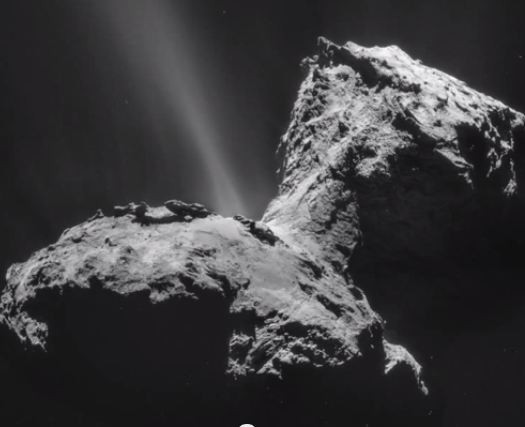The massive amounts of gas and dust now being vented by Comet 67P Chryumov/Gerasimenko as it moves closer to the Sun are endangering the orbiting Rosetta spacecraft.
The jets of gas caused by melting ice are creating a "spin-down effect" that slows down the rotation of the four kilometer wide comet, said scientists from the European Space Agency (ESA).
Mission controller said the comet takes 12.4 hours to complete one rotation but have noticed this is being increased by about a second every day.
"The gas jets coming out of the comet, they are acting like thrusters and are slowing down the comet," said ESA flight director Andrea Accomazzo to BBCNews.
In September 2014, ESA determined the comet's rotation period was lengthening by 33 milliseconds a day. With the comet moving closer to the Sun and ejecting massive volumes of gas and dust, this spin-down effect is about one second a day.
The increased amount of gas and dust being ejected by the comet will also prevent the Rosetta from approaching any closer.
"The aerodynamic effects are now more and more important. The jets are getting stronger and stronger," he said.
Accomazzo also said these gases are moving at 800 meters per second, or fast enough to endanger Rosetta.
"We definitely have to take this into account. We are a big spacecraft with 64 square metres of solar panels. We're like a big sail," he pointed out.
Comet 67P is also emitting more dust as it approaches the Sun. Accomazzo said the dust in the environment around the comet has confused the star trackers Rosetta uses to work out its orientation. The trackers now determine the dust particles to be stars.



























